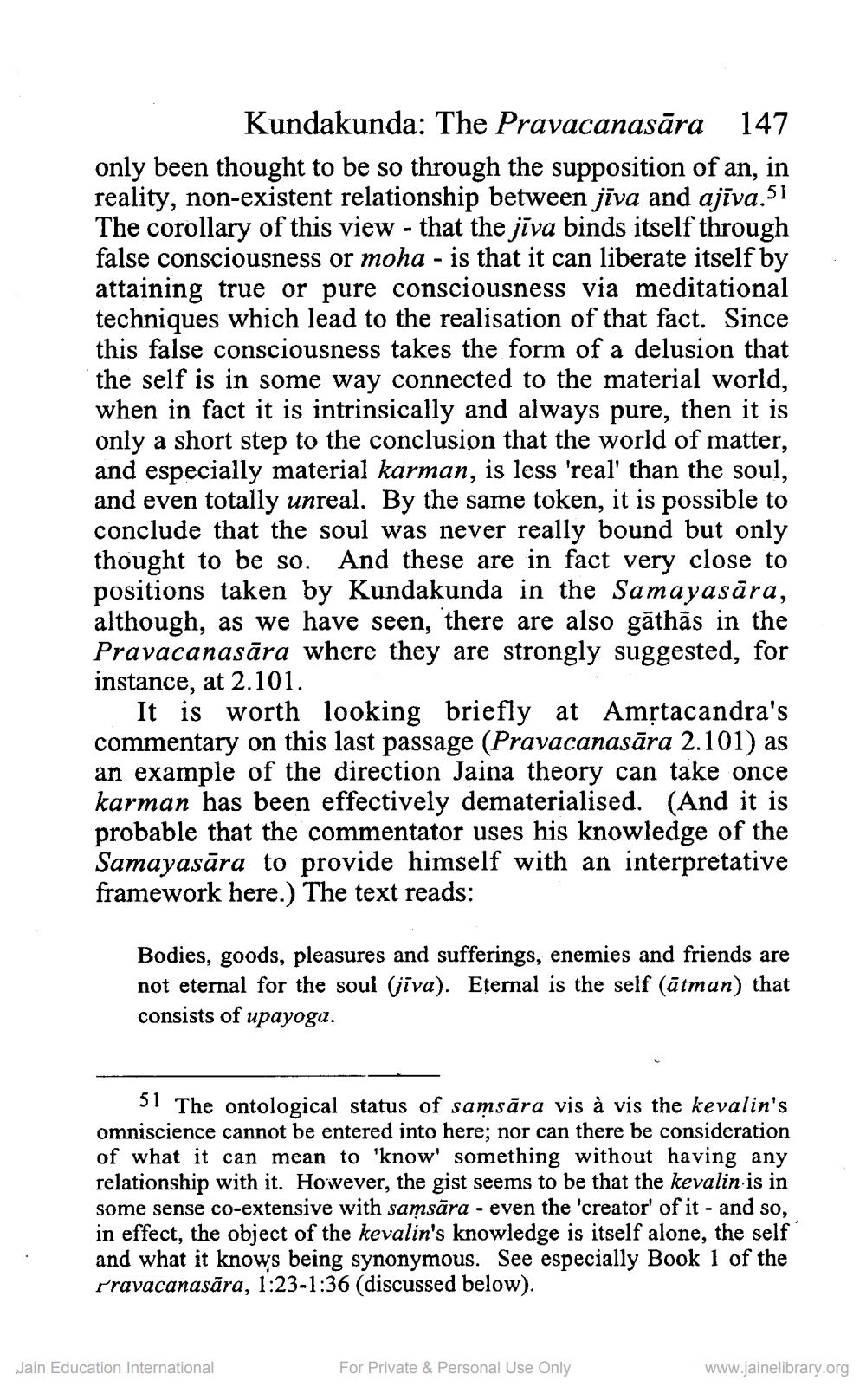________________
Kundakunda: The Pravacanasāra 147 only been thought to be so through the supposition of an, in reality, non-existent relationship between jīva and ajīva.51 The corollary of this view - that the jīva binds itself through false consciousness or moha - is that it can liberate itself by attaining true or pure consciousness via meditational techniques which lead to the realisation of that fact. Since this false consciousness takes the form of a delusion that the self is in some way connected to the material world, when in fact it is intrinsically and always pure, then it is only a short step to the conclusion that the world of matter, and especially material karman, is less 'real' than the and even totally unreal. By the same token, it is possible to conclude that the soul was never really bound but only thought to be so. And these are in fact very close to positions taken by Kundakunda in the Samayasāra, although, as we have seen, there are also gāthās in the Pravacanasāra where they are strongly suggested, for instance, at 2.101.
It is worth looking briefly at Amộtacandra's commentary on this last passage (Pravacanasāra 2.101) as an example of the direction Jaina theory can take once karman has been effectively dematerialised. (And it is probable that the commentator uses his knowledge of the Samayasāra to provide himself with an interpretative framework here.) The text reads:
Bodies, goods, pleasures and sufferings, enemies and friends are not eternal for the soul (jīva). Eternal is the self (ātman) that consists of upayogu.
51 The ontological status of samsāra vis à vis the kevalin's omniscience cannot be entered into here; nor can there be consideration of what it can mean to 'know' something without having any relationship with it. However, the gist seems to be that the kevalin is in some sense co-extensive with samsāra - even the 'creator' of it - and so, in effect, the object of the kevalin's knowledge is itself alone, the self and what it knows being synonymous. See especially Book 1 of the Pravacanasāra, 1:23-1:36 (discussed below).
Jain Education International
For Private & Personal Use Only
www.jainelibrary.org




